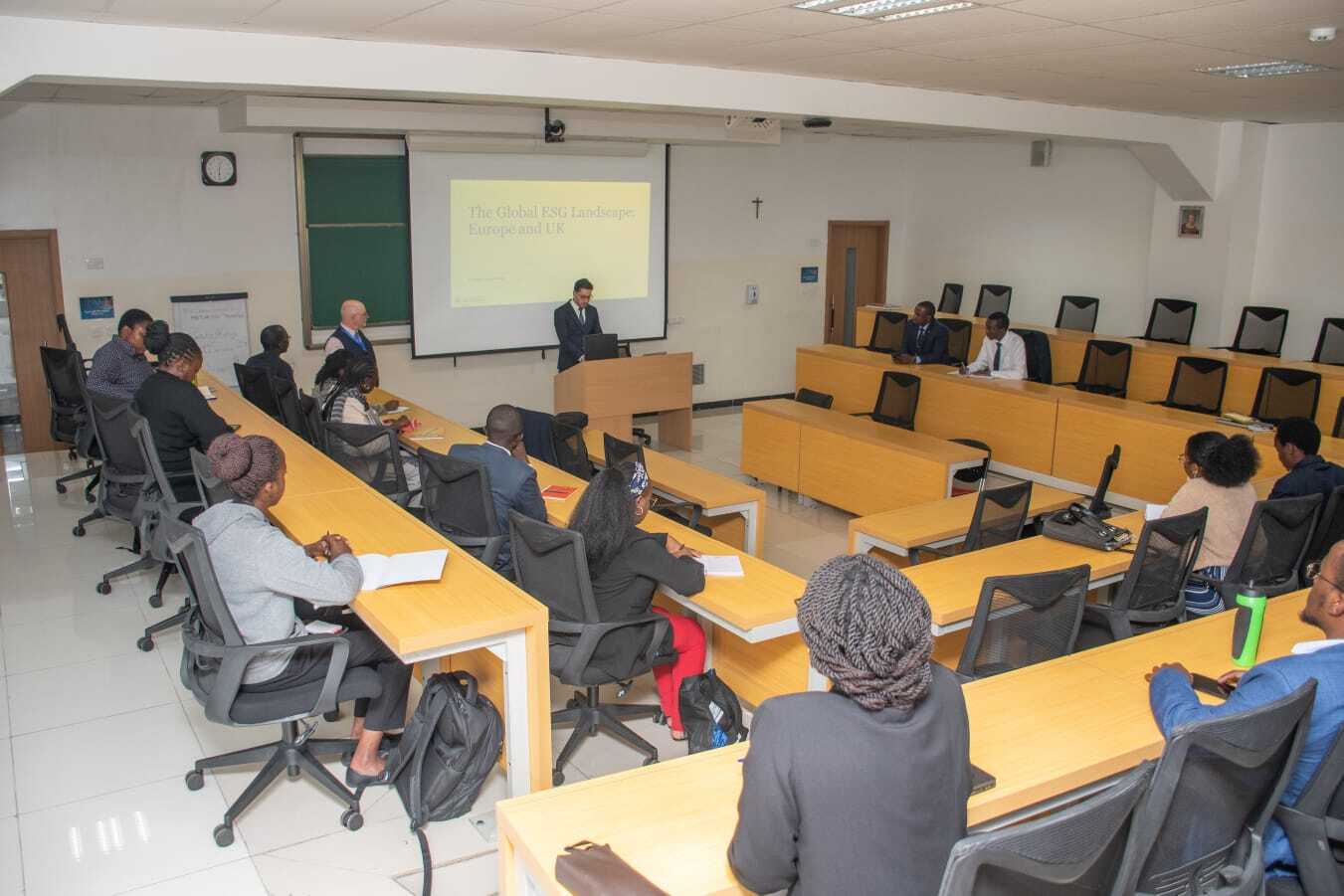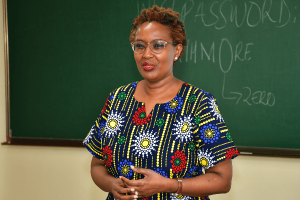ESG virtuosos: Crafting Corporate Tomorrow from the Beginning

“We need to begin this conversation from the beginning, for the beginning is the best place to start” Professor Adolfo Paolini.
On 15th January 2024, SLS played host to a guest lecture on the ESG landscape facilitated by Prof Adolfo Paolini, the Dean of Law at Buckingham University. Prof Paolini has practised in corporate and Insurance law and has a special interest in driving ESG compliance through the sustainable leadership of a company’s directors.
The conversation touched on 3 drivers of corporate purpose as captured by Prof Paoloni. These are Time, Capital and Skill. Companies appreciate the need for timely service delivery within the changing landscape to maintain their competitive edge. Capital and risk management encourages companies to pool resources towards ESG compliance noting the notable financial risks that accrue from ESG non-compliance fines. Skill refers to the inherent competencies of a company and its people in attaining ESG compliance. As later touched on by Prof Paolini, a director’s duty of care and skill ought to have a revamped meaning beyond the perennial duty of care which investigates what a reasonable man would do in a given instance. On the other hand, and more pertinent to Prof Paolini, skill refers to what a director ought to do in a given situation appreciating their professional qualifications, the unique nature of their responsibility and accruing benefits.
From this background, the discussion steered towards Corporate Social Responsibility (CSR) noting the centrality of Environment, Social and Governance (ESG) principles in driving corporate sustainability. To them, companies stand to create more value by focusing on the social aspect of their businesses, beyond the classical understanding of shareholder capitalism as the maximisation of shareholder value. A company is termed to be socially responsible where it promotes fair labour practices to its employees, and other stakeholders, at every stage of its value chain. From Prof Paolini’s experience, they noted that companies that have done so experience great leaps in occupational health.
Penultimately, Prof Paolini guided the conversation to the ESG-related statutory landscape in Europe. The European Parliament has been a trailblazer in ESG compliance by formulating laws such as the Corporate Sustainability Reporting Directive (CSRD) and the Corporate Sustainability Due Diligence Directive (CSDDD) which stress the importance of fair and just transitions in the global value chains of multinational corporations. He particularly appraised Section 170 of the UK Companies Act (2006) which limits the scope of directors to the company and not other stakeholders. This provision thus confines the scope of derivative suits that may be instituted against errant directors. By their nature, derivative suits are claims by a company’s shareholders, suing on behalf of the company, against directors for a breach of their duties.
Prof Paolini noted that this legal provision results in instances where an aggrieved third party sues the company which then institutes a derivative claim against the concerned director(s). To work around this situation, Prof Paolini is pro the inclusion of 3 new duties of directors touching on mandatory human rights and environmental due diligence, the duty to implement due diligence and the duty to integrate such due diligence into corporate strategy. These duties provide more certainty of the duty of a company’s director(s) to spearhead ESG principles as part of the revamped understanding of corporate purpose.
SLS appreciates Prof Paolini for the informative discussions touching on principles closer home to Strathmore University’s annual theme Sustainability: Caring for People and Planet.
This piece was written by Peter Muindi, a third year law student, Strathmore Law School.



